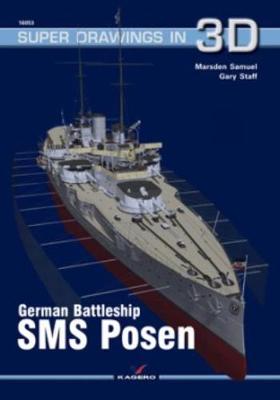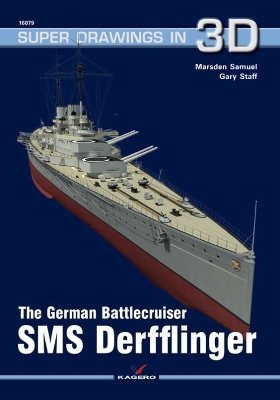Super Drawings in 3D
2 total works
The Derfflinger was considered to be the best class of battle cruisers up until the end of the First World War, and rightly so. Aesthetically they were also the most handsome. This German battlecruiser was built in the early 1910s during the Anglo-German naval arms race. Design work was begun in October 1910 and continued until October 1912. Derfflinger was the lead ship of her class and had the sisterships Lützow and the near sister Hindenburg. The design represented the birth of a new generation of German Großen Kreuzer. The Derfflinger-class battlecruisers were larger and featured significant improvements over the previous German battlecruisers, carrying larger guns.
After the final design of cruiser J there were still outstanding issues for the following design. In April 1910 the General Navy Department was asked to prepare the requirements for the cruiser of 1911. The issues were primarily the number of shafts, machinery and armament. A three shaft arrangement would allow the employment of a diesel engine on the centre shaft. The advantages of this were better thermal efficiency, easier transfer of fuel, saving in personnel and the price. The General Department thought the change to 30.5cm calibre was essential. The weight increase of 8~30.5cm guns over 10~28cm guns was just 36 tonnes and the latest English battleships were fitted with 300mm armour. If the cruisers were expected to fight in the line the increase was mandatory. However, von Tirpitz disagreed and the matter remained unresolved.
After the final design of cruiser J there were still outstanding issues for the following design. In April 1910 the General Navy Department was asked to prepare the requirements for the cruiser of 1911. The issues were primarily the number of shafts, machinery and armament. A three shaft arrangement would allow the employment of a diesel engine on the centre shaft. The advantages of this were better thermal efficiency, easier transfer of fuel, saving in personnel and the price. The General Department thought the change to 30.5cm calibre was essential. The weight increase of 8~30.5cm guns over 10~28cm guns was just 36 tonnes and the latest English battleships were fitted with 300mm armour. If the cruisers were expected to fight in the line the increase was mandatory. However, von Tirpitz disagreed and the matter remained unresolved.

